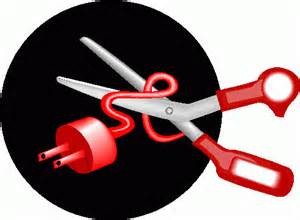 Technology has revolutionized the way we do business. We can meet with a dozen remote team members face-to-face on Google Hangout with the click of a mouse. We can crowdsource decisions through our social media networks and receive hundreds of opinions in minutes. And we can search for price comparisons while we stand in a store. In so many ways, we are more agile, informed, and connected than ever.
Technology has revolutionized the way we do business. We can meet with a dozen remote team members face-to-face on Google Hangout with the click of a mouse. We can crowdsource decisions through our social media networks and receive hundreds of opinions in minutes. And we can search for price comparisons while we stand in a store. In so many ways, we are more agile, informed, and connected than ever.
We are potentially unhealthier than ever as well. Laptops, iPads, and smart phones are ubiquitous in the workplace. We can work from a conference room, home, a plane, the beach, a wedding, bed, etc. We can connect anywhere, anytime, and that is a problem.
The more hyperconnected we become to our work, the less connected we become with our family, our health, our mental wellbeing, and ourselves. There are times when we absolutely need to disconnect. These times may seem obvious, but if we were actually good at disconnecting, we wouldn’t need to blog about it.
Let’s work harder at disconnecting at these times:
On Vacation. This one seems obvious, but given how many vacation days go unused each year in the U.S. (five), we clearly fail at taking time for ourselves. Be the boss of your time, especially on vacation. Communicate your vacation/out-of-office plans to your colleagues, customers, and clients ahead of time. Set expectations around when you will respond to emails and calls. Let them know who will handle your workload while you’re out, and give them the power to make reasonable decisions on your behalf. When you set the tone for your digital vacation, your team will be more likely to respect that time. Have confidence that you’ve left the team in good hands, and everything else can wait until you return to the office.
At Night. We think we’re just going to check email once while we wait for dinner or once before bed. But what inevitably happens is that quick 3-minute task turns into a series of 20 emails, a spreadsheet review, an edit to a RFP, and starting the monthly report. Three hours later, our dinner is cold and family is annoyed, and that quick email check-in ruined another restful evening. This is the perfect recipe for burnout. Resist the urge to check your email during your personal down time. If you absolutely must check in online, set a timer for yourself and stick to that timeline. The vast majority of the time, the work can wait until tomorrow.
During Meetings. There are certainly times when bringing your laptop to a team meeting is valuable. You can pull real time data or find answers to questions quickly. But bringing the laptop or smart phone also introduces an irresistible temptation. When the conversation wanders, you will use that as an excuse to check in online. Not only will this disengage you from the group conversation, but it signals your disinterest to others. Even if the email you’re responding to is extremely important, the damage you’re doing to your team by seeming disrespectful is equally important. Leave the technology at your desk and remain present for the meeting. This will also help you keep the meeting on track because you don’t have a mental escape when boredom hits.
For Difficult Conversations. Whether you’re delivering constructive feedback, trying to make a strategic decision, or listening to a team member’s problem, that task deserves your undivided attention. Even the sound of the email notification or phone ringing can derail the conversation. Make a point of turning off the sound on your computer and placing your ringer on silent when you engage in a difficult conversation. This also signals your commitment to the problem to the other individual and sets the tone for the meeting.

To Think. At a minimum, choose one 15-minute block per day when you completely disconnect from technology just to think. Be present in the moment and allow your brain to work uninterrupted. You aren’t doing your best thinking as you toggle back and forth between email, Facebook, Twitter, and your kid’s daycare camera. Give yourself the space to do your best work without distractions.
While many of us feel chained to our technology, the reality is that we hold the power…literally…we need to hit the power-off button. No one can sustain an always-on schedule. Take control of your day and find times to disconnect from the tech to re-connect with the real world.

